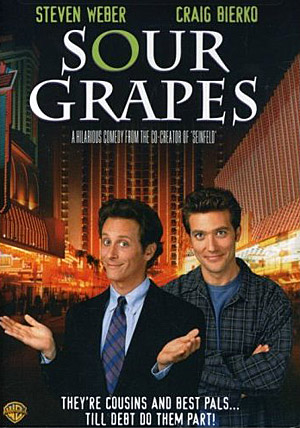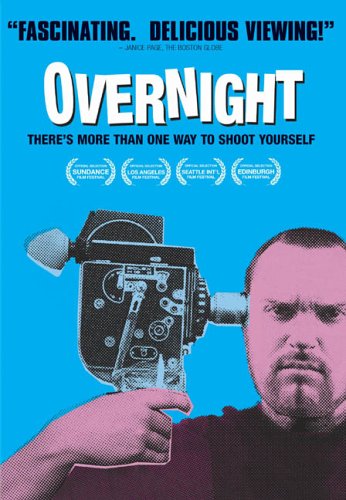As I've mentioned before, any Joe Schmo can purchase a domain name and call themselves a publisher. What difference is there between someone like that (who probably has next to no experience) publishing your book or you publishing your own book? Well, unless a) the "publisher" can pay you a decent advance and b) has the ability to distribute your book to many places (places you couldn't distribute to on your own), then the answer is pretty much nothing. Yesterday I saw a market report where a new publisher was interviewed. Here are the basics from that interview:
Publisher: Grand Mal Press Editor: Darren Heath Pay Rate: token advance, 8% royalties on print, 15% on ebook Response Time: 3 months at the latest Reading Period: Until closed Description:sci-fi, horror, mystery, et al
And here are the basics from the guidelines posted at the publisher's website:
Payment: Authors will receive a token advance up front. Authors will earn quarterly royalties equaling 8 percent on print/15 percent on e-books.
Book Format and Accessibility: Books will be printed in POD format (ebooks will be printed six months after the print release). This means they WILL be available through online retailers such as Amazon.com, Walmart.com, Borders.com, etc. We will also actively seek reviews and will promote it to the best of our abilities.
Submission guidelines: Email your manuscript as an attachment to grandmalpress_AT_gmail_DOT_com. Submissions MUST be made in 12pt Times New Roman, SINGLE SPACED in "normal" format. Failure to abide may result in your work not being considered.
Include your name and e-mail address on the cover page together with a short bio. Include the following: "This work is entirely original and my own and has not been previously published in any format whatsoever." If you have the ability and intention to promote the book containing your work, please let us know your plan. No simultaneous submissions. No reprints. Put "Novel Submission" somewhere in the subject line of your email. Also include as much of the Title as possible in the subject line.
On the one hand, I feel the above should speak for itself and I don't have to point out all the things wrong with it, but on the other hand ... well, better safe than sorry.
For starters, I would not advise any writer to waste his or her time on this publisher, or any publisher that would offer the same type of contract. Sure, every publisher has to start somewhere (so goes the usual argument), but the fact is this smells like someone woke up one day and thought, Hey, wouldn't it be cool to start my own publishing company? and then went from there. Basically, it's those royalty rates that concern me, not to mention the fact you are only paid up front by a "token advance" which could be anything from $5 to $100 (though I suspect it's closer toward the $5 range). As can be seen by their first title, the price is $14.99 (which I always find steep for a small press POD book), which, in theory, earns the author roughly $1.20 per unit sold. That is, after all, 8%. And the e-book? Well, as you can see from the guidelines, e-books won't be published until six months after the print version is published, so it's impossible to guess a price. But guess I shall. Let's say they price it somewhat reasonably at $4.99 (though I suspect it'll be more). 15% would then come to $0.75. That, in case you're wondering, is about how much I make on my self-published e-books at Amazon priced at $1.99. And Amazon now offers 70% royalties for any e-book priced between $2.99 and $9.99, so really the publisher is making $3.50 off an $4.99 e-book and passing only $0.75 cents off to the author.
Do you see the problem now, folks?
I don't want it to seem like I'm attacking this specific publisher, because there are many out there just like it. Some offer better royalties than others, though that still doesn't mean they're a better option. (One small press publisher who'd approached me about possibly publishing a novella was offering between $200-$500 flat fee for limited edition hardcover, and 50% royalties on the e-book; I didn't have anything suitable at the time to submit and had to pass, and even if I did have something suitable to submit I'm not completely sure I would have sent it anyway, as it was clear all the publisher was really trying to do was grab e-book rights.) You see, in every situation you have to ask yourself how this benefits you in the end. If a publisher is willing to pay a decent advance and offer decent royalties and actually has the know-how to get your book in the right places, then by all means, be my guest. But if a publisher isn't offering you hardly anything, not even a decent cover (example), then why waste your time and not try to do it yourself?
* * *
If you haven't seen it yet, over the weekend an essay was published by Edward Docx (who sounds like a program created by the Microsoft Matrix to destroy us all). Basically, he has some very silly things to say about how literary fiction is just so much better than genre fiction, and then Nick Mamatas has some very astute things to say that puts Docx to shame.
* * *

I'm a huge Larry David fan and finally got around to watching his 1998 movie Sour Grapes over the weekend. And it was bad. Like, really bad. So then I also watched Overnight, a documentary that follows the quick rise and fall of Troy Duffy, the writer/director behind The Boondock Saints.

I'd heard about the documentary forever and had been meaning to watch it and was glad to have finally seen it, but I'm not sure I can recommend it. If you're a Boondock Saints fan and really like film (as in you appreciate the behind-the-scenes stuff), then yeah, you might enjoy this. If you didn't care for the movie or didn't even see the movie, then this probably won't interest you. It starts out really good, but then seems to drag on. It made me think of Orson Welles, and how awesome it would have been had Orson had some friends following him around with a camera when he got the amazing deal with RKO and then, eventually, made Citizen Kane. That would have been incredible. But no, instead we have Troy Duffy, who was more arrogant than genius. And if you don't have Netflix (where it's streaming instantly), you can check out the documentary in parts at YouTube, staring with part one. To peak your interest, here is the trailer (don't mind the Dutch subtitles):
httpv://www.youtube.com/watch?v=p-dlNX4AxqM
